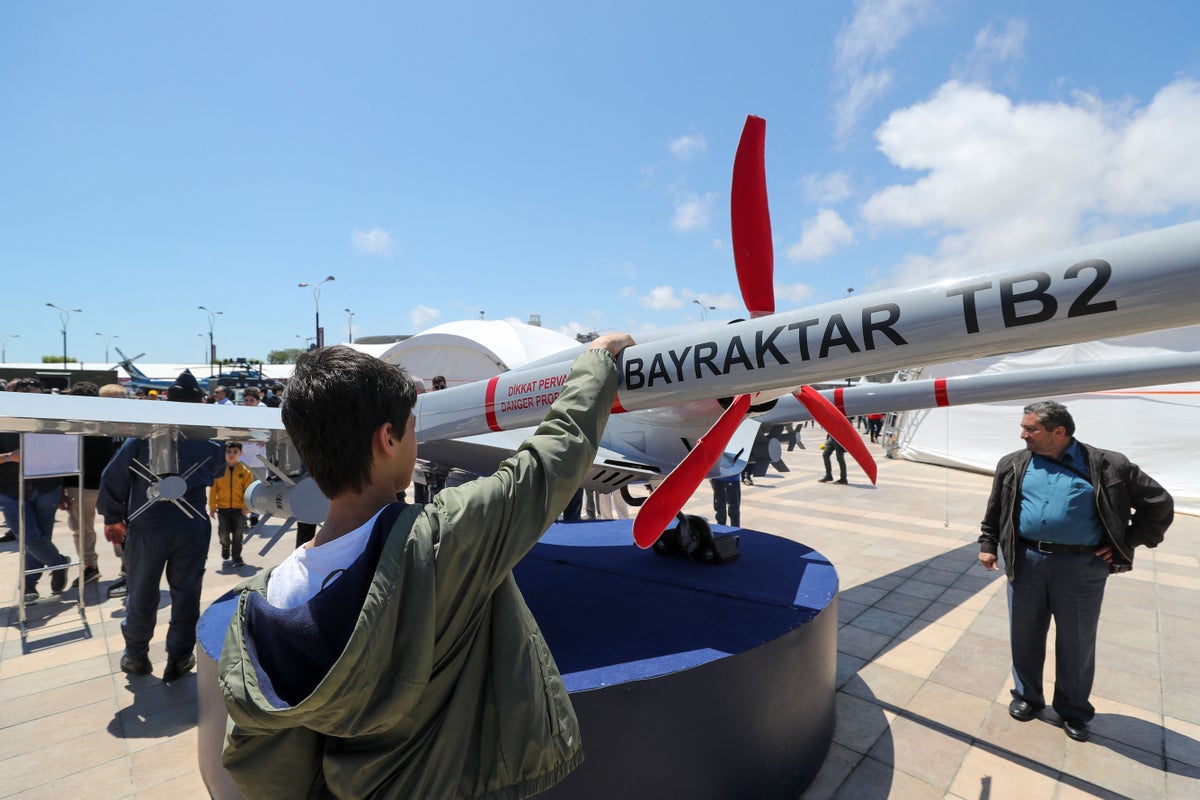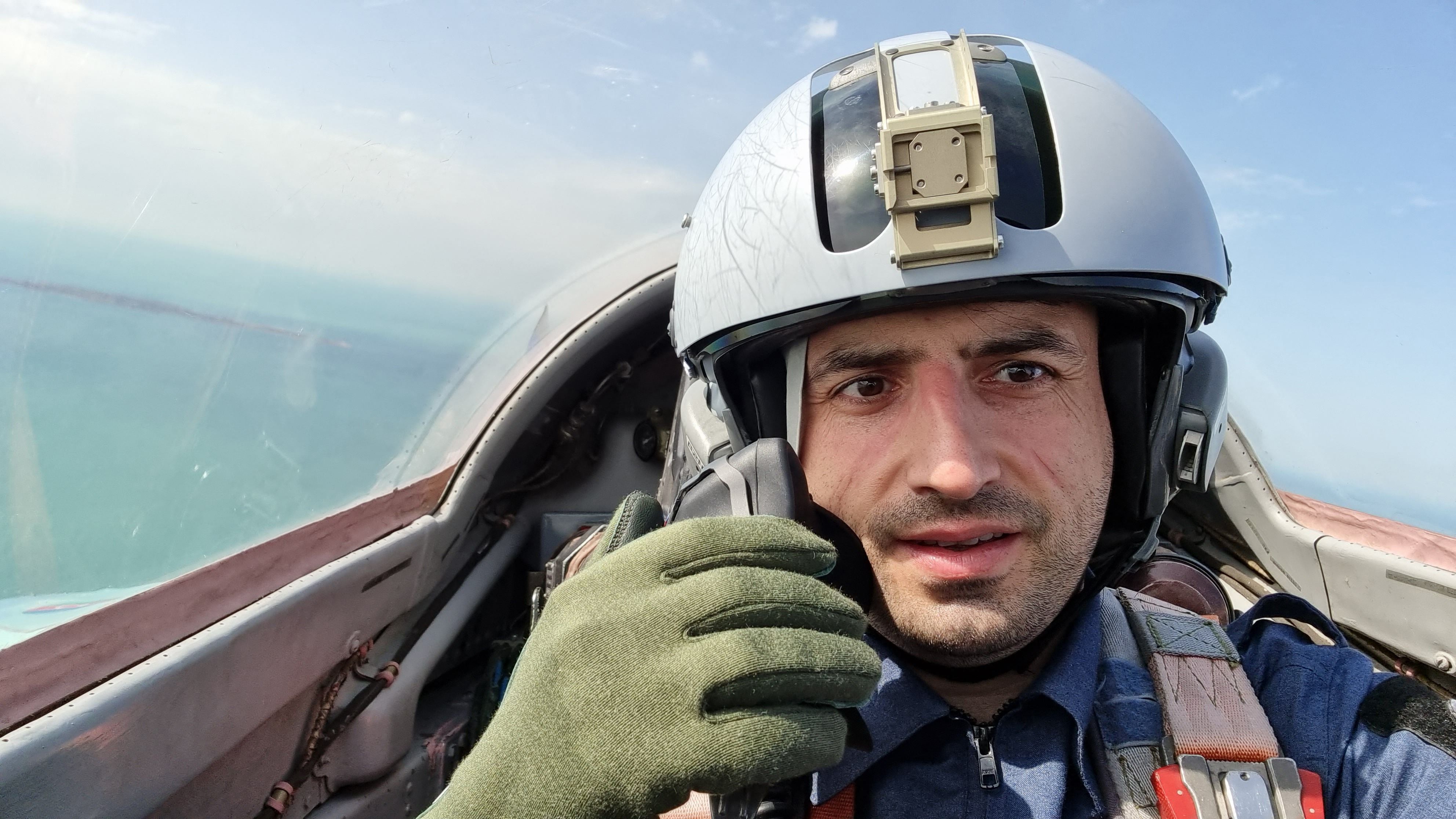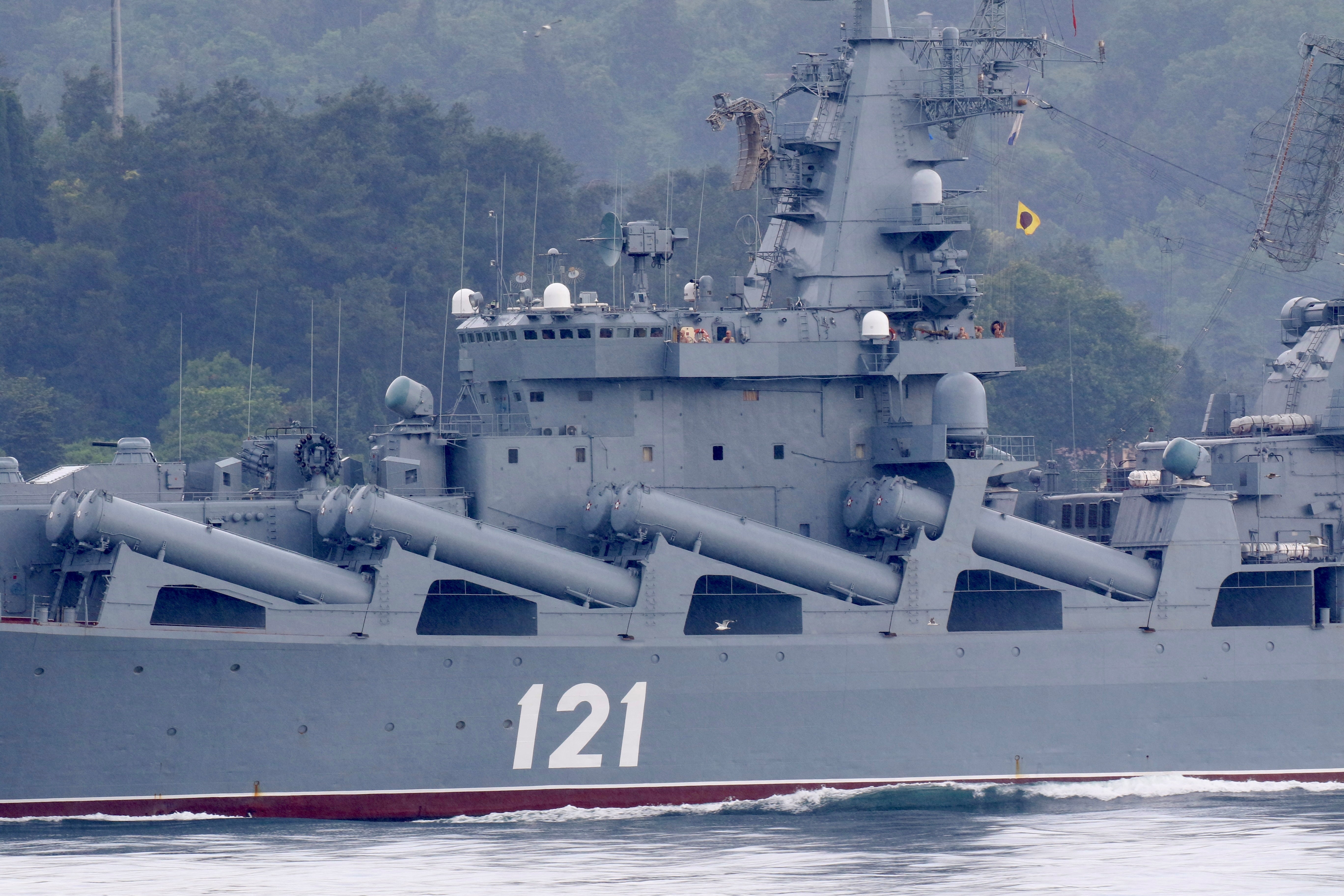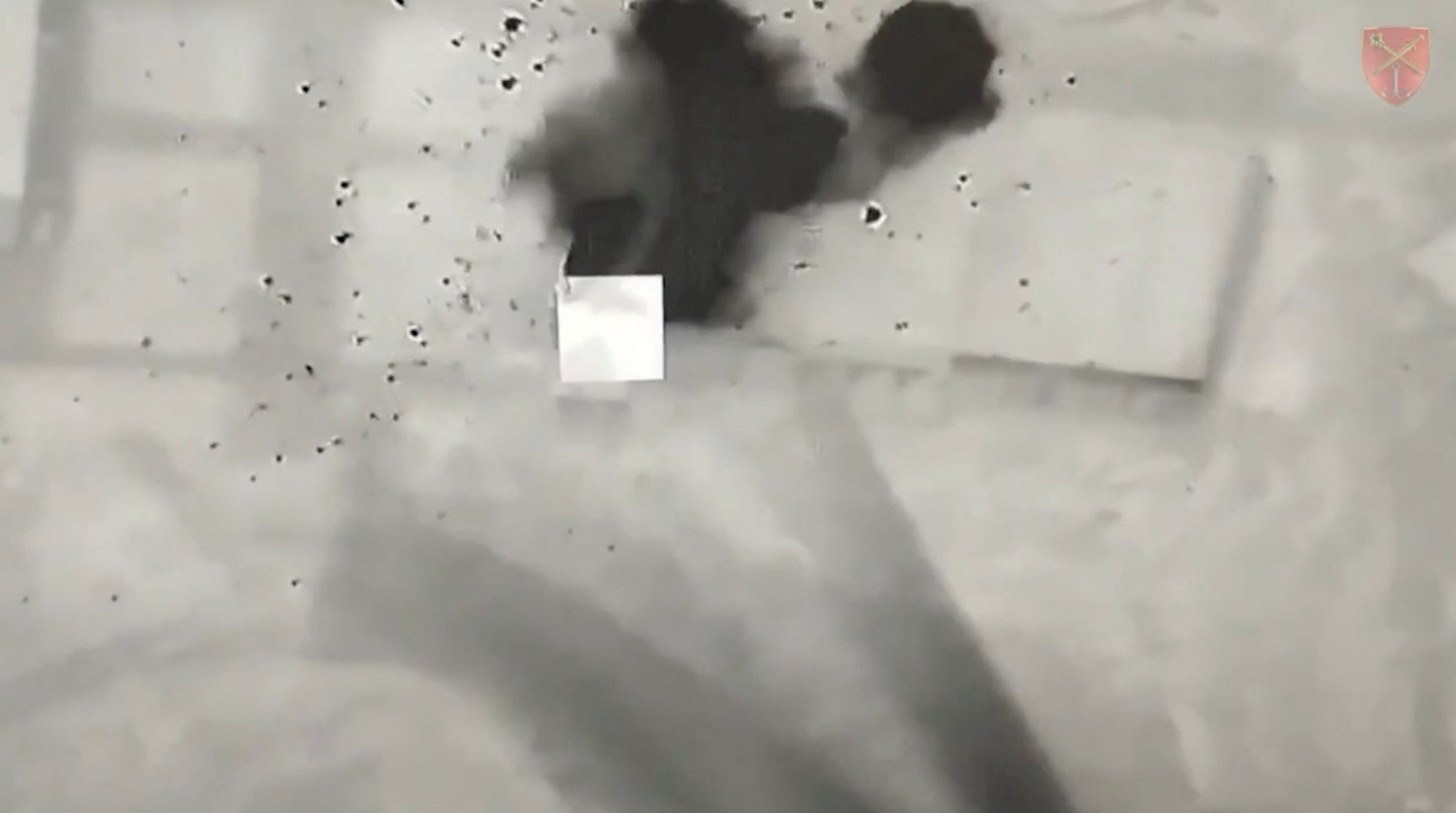
The central Asian nation of Kyrgyzstan finally managed to gain an edge over Tajikistan in an ongoing border dispute. In late 2021, it obtained three coveted Turkish Bayraktar TB2 unmanned aerial combat drones armed with precision missiles that could take out any encroaching armour. That, officials assured the public, would help fend off any incursions by its neighbour.
But not so fast.
Just months later, Turkey agreed to sell the very same drones to Tajikistan, potentially providing Dushanbe with parity in any further military encounters. Outraged officials in the Kyrgyz capital, Bishkek, rang up Ankara.
“They answered that it was just business,” Kyrgyz deputy foreign minister Jeenbek Kulubaev explained to lawmakers in April.
Turkey has eclipsed China as the world’s largest exporter of armed drones – advanced weapons that have tilted the balance of power in several wars, including the continuing conflict in Ukraine. The Bayraktar TB2, made by Istanbul-based Baykar Aviation, has become so famous in Ukraine that it could very well have become the world’s first and only weapon of war with a catchy music video devoted to it.
“Their arguments are all kinds of weapons – powerful rockets, machines of iron,” go the lyrics. “We have a response to all the arguments: Bayraktar.”
On Thursday, Lithuania’s defence minister announced a campaign by a television channel to crowdfund a TB2 for Ukrainians.
“I can’t remember such fanfare around specific weaponry,” says Joe Dyke, of Airwars, an organisation devoted to tracking civilian casualties in armed conflicts. “No one sang songs about the Predator or Reaper drones. It’s a moment where everyone is talking about Bayraktar.”

But the high profile of the weapons has also prompted proliferation concerns among a range of critics, including military experts and human-rights advocates. Drone envy is becoming the new “missile envy”, the term coined by Australian feminist Helen Caldicott to describe the Cold War arms race between the US and the Soviet Union.
“India, Thailand, Taiwan are all trying to develop this capability, and some are turning to Turkey,” says Chris Cole, founder of Drone UK. “If your enemy has them, you have to have them too, particularly since Turkey seems willing to sell to anybody.”
Baykar Technologies, the privately held defence contractor that invented the Bayraktar TB2 in 2014 and has produced and distributed at least 300 of them, did not respond to requests for an interview.
The company, founded by the late Ozdemir Bayraktar, is a powerful player in Turkey. Its CEO, Haluk Bayraktar, chairs the board of Turkey’s main defence lobby, while his brother and company CTO, Selcuk, who was featured this month in a glowing New Yorker article, is married to a daughter of Turkish president Recep Tayyip Erdogan.
By law, Turkey imposes controls on the export of the $6m (£4.76m) Bayraktar TB2, and sales must be approved by the Ministry of Defence and the office of Mr Erdogan. But the exact rules and criteria for countries wishing to purchase the weapon are not public. As one official at the Ministry of Trade put it to The Independent: “It is not spoken about.”
The Bayraktar has been used with devastating effect against Russian armour to halt the advance of Vladimir Putin’s invasion of Ukraine, earning Turkey the friendship of Ukrainian president Volodymyr Zelensky, occasional grumbling from Moscow, and rare praise from western partners at a time when relations between Ankara and its Nato allies are strained.
According to videos promoted by the Ukrainian armed forces, the TB2 has destroyed dozens of pieces of Russian armour and artillery, as well as several ships in the Black Sea. It apparently played a role in distracting the Moskva’s defences before the flagship of the Russian fleet was sunk by Neptune missiles in April.
Western officials say any alarm about the spread of the weapons has been tempered by glee at the humiliating black eye they have delivered to Russia.
“If it pisses off Russia then so be it,” said a senior western official, speaking on condition of anonymity. “Russians always deny that they are responsible for weapons that end up in the hands of other forces. Turkey is turning the tables on the Russians, and gives a similar argument. ‘Yes, we sold it. But if you have a problem, you should talk to them.’”
Arms control experts have also suggested that Ukraine’s effective use of the drones against pro-Russian forces in the Donbas region, beginning in October 2021, may have prompted, influenced or hastened Mr Putin’s decision to launch an all-out invasion in February.

In addition to their use by the democratically elected government in Ukraine, Bayraktar drones have been used by the authoritarian government of Ethiopia to fight off ethnic Tigray rebels advancing on the capital, Addis Ababa, in a conflict started by the government. And the weapons helped tilt the balance of power in favour of Azerbaijan in its controversial 2020 war to wrest control of the Nagorno-Karabakh enclave from Armenia.
Turkey’s willingness to approve sales of the drones to two central Asian nations in the midst of a border dispute has disturbed observers. Clashes between Tajikistan and Kyrgyzstan along a disputed river valley last year left at least 55 people dead, more than 250 injured, and at least 40,000 displaced. The conflict heated up again in January and March.
Other purchasers of Turkish drones include Morocco, Nigeria, Saudi Arabia, Kazakhstan, Turkmenistan and Qatar, nations not known for their exemplary adherence to human rights and the rules of war. In all, at least 19 countries, including Nato member Poland, have obtained the Bayraktar or other Turkish combat drones, according to media reports.
Experts say defence industries worldwide are devoting resources to attempts to emulate the success of the Bayraktar. It is equipped with artificial intelligence capabilities that allow it to taxi, take off, cruise, land and park autonomously.
The low-flying drone has a very small silhouette that allows it to evade radar systems. Its design allows the integration of different types of cameras. Its capacity to fire off up to four laser-guided 500lb missiles makes it especially lethal. Its relatively low price tag makes it palatable for developing or middle-income countries to buy, fly, and sacrifice in combat.
So far, other countries have struggled to emulate the success of the Bayraktar, even as they’ve ordered their designers to come up with comparable weapons.
“Baykar seems to have achieved a very nice balance between affordability, performance and technology,” says Arda Mevlutoglu, an Ankara-based defence industry adviser. “They have managed to streamline production so that it is relatively easy and quick to manufacture.”
The drones have also helped to promote Turkey’s own foreign policy aims. In January 2018, Turkey used the Bayraktar TB2 against Kurdish rebels controlling the Afrin region of northwest Syria, driving the forces out and taking control of the mountainous enclave during what was called Operation Olive Branch. The drone “performed well in conditions of snow, storm, torrential rain, fog and intense clouds”, according to a promotional video produced by Baykar.
In Libya, the Bayraktar – operated by Turkish military personnel deployed to the north African country – changed the dynamic of the civil war, forcing Moscow’s client Khalifa Haftar, a renegade army officer, into a humiliating retreat from forces allied with Ankara in 2020.
In a dramatic show of force, Turkey used Bayraktar TB2 and Anka-S drones to pound Bashar al-Assad’s forces in Syria’s northwest in March 2020, halting an advance on Idlib province and leading to a relatively peaceful two-year ceasefire.
In addition to selling drones, Baykar provides ongoing maintenance and training services that tighten bonds between Turkey and other nations. Experts strongly suspect that Turkish military personnel helped to operate the drones for Azerbaijan during the Caucasus war, and have speculated that they provided the same service for Ethiopia.
I can’t remember such fanfare around specific weaponry
Baykar itself employs numerous instructors and pilots, in addition to interfacing with Turkish armed forces.
“I do wonder if the company is operating some of these systems,” says Mr Cole. “I wonder if that comes as part of the package, as it’s surprising that [their customers] could put these into operation so quickly.”
Baykar has forged manufacturing deals in both Kazakhstan and Ukraine to produce the Bayraktar and other drones.
“These are complicated and sophisticated weapons,” says Mr Mevlutoglu. “By providing expertise and knowhow, you establish a long-term relationship with that country. That acts as foreign policy leverage, and might increase foreign policy influence in those regions.”
Drones alone cannot win wars, and experts say that some of the purchases of the Bayraktar TB2 appear to be prestige buys to bolster morale and win political points for rulers.
“There are other factors which make drones successful on the battlefield, such as deployment tactics and coordination with other electronic warfare systems, which differ from state to state,” says Syed Ali Abbas Bukhari, a co-founder of Global Defense Insights, a Pakistani military publication.
But the success of the Bayraktar TB2 has proved a boon for Turkey, as well as for Baykar, which is investing heavily in future generations of drones, including the TB2-S, which can be controlled with satellite connections instead of a terrestrial antenna signal.

It remains unclear how many drones Baykar has sold abroad, but even a fraction would amount to hundreds of millions of dollars in revenue for equipment, training, maintenance and spare parts. Turkey’s arms industry exports have grown from about $250m in 2002 to more than $3bn last year, and may reach $4bn in 2022, Ismail Demir, chief of Turkey’s defence industries ministry, said in an interview with a Turkish television station in March.
Baykar’s Bayraktar Akinci, in service only since last year, is larger, can fly further at higher altitudes, and is able to carry bigger payloads than the TB2. Last month, it flew its first combat missions, striking targets allegedly held by the outlawed Kurdistan Workers’ Party (PKK) in northern Iraq. Ankara-based Turkish Aerospace Industries also manufactures a line of drones that can be used for both surveillance and combat.
Baykar’s website lists several job openings for specialists in artificial intelligence, as it looks to refine its drones’ autopilot capabilities as well as “to identify the objects” in images captured by their cameras, hinting at the possibility that the drones could eventually be equipped with autonomous attack capability. Another forthcoming version of the Bayraktar can be launched from ships.
Led by Turkey’s arms industry, drones are changing warfare worldwide. But many doubt whether handing governments subject to few democratic constraints, and offering little transparency, the ability to inflict heavy damage on their adversaries without fear of personnel loss will make the world safer.
“They just seem to be supplying armed drones to whomever wants them, and have no criteria for refusal on regional security or human rights grounds,” says Mr Cole. “They seem to be just chasing the money, and that is very worrying.”
Naomi Cohen contributed to this report







